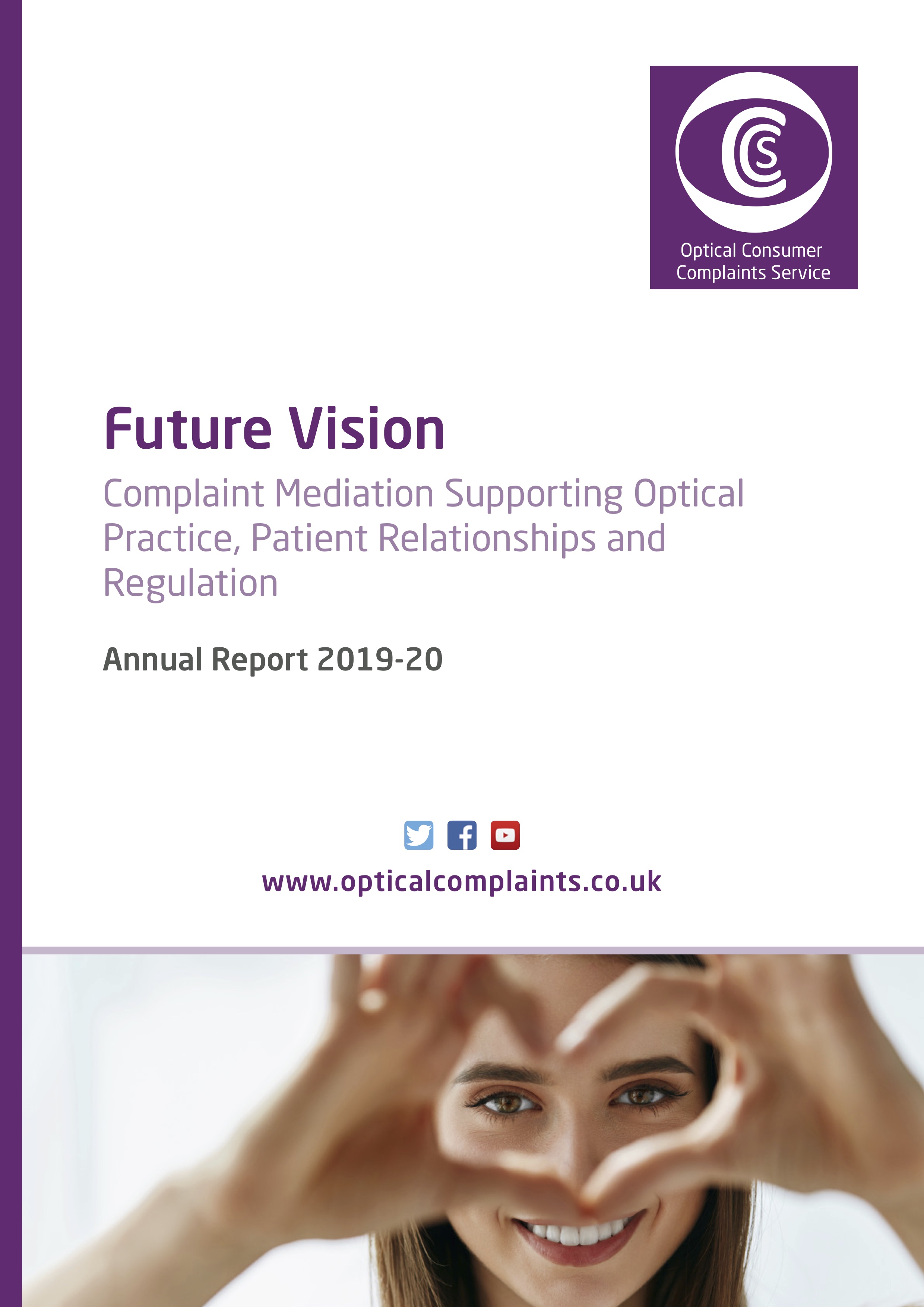OCCS responds to rise in eye exam complaints
 The Optical Consumer Complaints Service (OCCS) has set out “the story behind the headline” of the steep year-on-year increase in complaints relating to eye examinations in its 2019-20 Annual Report.
The Optical Consumer Complaints Service (OCCS) has set out “the story behind the headline” of the steep year-on-year increase in complaints relating to eye examinations in its 2019-20 Annual Report.
The OCCS is delivered by Hertfordshire-based Nockolds Solicitors’ Alternative Dispute Resolution team. Its 2019-20 report shows a rise in enquiries, as well as high-resolution rates and a large proportion of cases resolved within a short timescale.
Since its inception in 2014, the OCCS has seen a continuous rise in enquiries, with the latest figures having increased by eight per cent year-on-year. This equates to a rise of 113 enquiries, bringing the total of cases referred to the OCCS in 2019-20 to more than 1,600. That’s an increase of more 1,000 compared to the total amount in its first year. Resolution rates at 98 per cent have remained high throughout the lifetime of the service.
In terms of the categories of complaints handled by the service during 2019-20, customer care-related complaints decreased by 15 per cent year-on-year, while complaints concerning fees and charges increased by 32 per cent (70 to 93).
The most common complaint pertained to the customers’ satisfaction with their glasses, attributed by the consumer to either their eye examination, issues with dispensing, their prescription being dispensed away from the prescribing practice, or the most common reason, a concern about prescription accuracy.
In the last year, referrals from the OCCS to General Optical Council Fitness to Practise (FTP) decreased by 81 per cent, to 0.4 per cent of all enquiries. Referrals to the service by the GOC FTP team increased, and accounted for 18 per cent of the enquiries received into the GOC.
Responding to the rise in eye exam complaints, the OCCS stated: “…the OCCS team rightly categorises complaints based on the primary concern raised by the consumer. Whether that initial concern is the substantive issue may not always be the case.
“As an example, 42 per cent of complaints relating to eye examinations relate to ‘prescription error’ or non-tolerance to spectacles often easily addressed by a recheck or adjustment to the prescription or dispensing…very few concerns relate to the quality of the examination and even fewer would give any cause for concern regarding the provision of services to the public.”
Read the OCCS’s response in full here – and download its 2019-2020 Annual Report here.